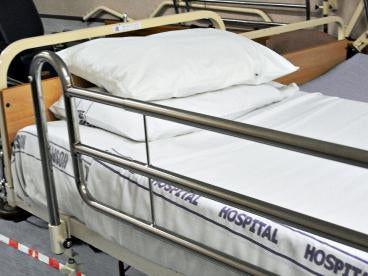As part of its efforts to give healthcare providers greater flexibility to respond to the rapidly growing public health emergency, on March 30, 2020, the Centers for Medicare & Medicaid Services (CMS) issued an initiative called “hospitals without walls,” which is an unprecedented array of temporary waivers to allow hospitals to expand treatment capacity outside their hospital walls in response to the patient surge resulting from the COVID-19 pandemic, the illness caused by the new coronavirus. The CMS waivers are effective retroactively to March 1, 2020, and continue for the duration of the COVID-19 national health emergency. The hospitals without walls initiative provides new opportunities for ambulatory surgery centers (ASCs) to play an important role in combating this crisis, especially significant when the elective surgeries that are a mainstay of many ASCs’ business are largely halted under state and local shutdown orders.
Under the initiative, ASCs have an expanded role in responding to the COVID-19 pandemic. During the COVID-19 national health emergency, hospitals are permitted to transfer patients to ASCs and other off-site locations for triage and treatment, so long as it is not inconsistent with the state’s emergency preparedness or pandemic plan. This allows hospitals to make room for COVID-19 patients needing acute care in their main facilities, and simultaneously allows ASCs to provide hospital services to meet the needs of Medicare beneficiaries during the emergency, including cancer procedures, trauma surgeries, and other essential surgeries typically provided by hospitals.
ASCs can provide the hospital services by either (i) contracting with hospital systems, in which case hospitals will be able to bill Medicare as if the services occurred within the hospital’s main facility; or (ii) enrolling in Medicare and receiving temporary billing privileges as a hospital pursuant to a streamlined enrollment and certification process, as long as the ASCs meet the applicable conditions of participation and other requirements not waived by CMS.
The CMS waivers also permit certified registered nurse anesthetists (CRNAs) to provide services at ASCs without physician supervision. This allows CRNAs to function to the fullest extent of their licensure in ASCs, freeing up anesthesiologists to be available for more complex surgical cases performed in acute-care hospitals.
By shifting treatment capacity to off-site locations such as ASCs, the hospital without walls initiative should better enable our healthcare system to respond to patient surges, allowing hospitals to focus on the most critical and medically complex COVID-19 patients, to maintain infection control protocols, and to conserve personal protective equipment. At the same time, it will provide ASCs with an opportunity to continue to serve their patients and affiliated physicians and to offset revenue lost by the suspension of elective procedures.
It should be noted that the changes announced by CMS relate only to Medicare and Medicaid coverage and payment policies and do not directly affect state requirements for facility licensure or medical professional licensure. However, state health agencies are also responding to the COVID-19 emergency with increased regulatory and enforcement flexibility. ASCs pursuing the options provided for in the CMS initiative should confirm with their respective states what actions may need to be taken under state laws and regulations to take advantage of the initiative.





 i
i


